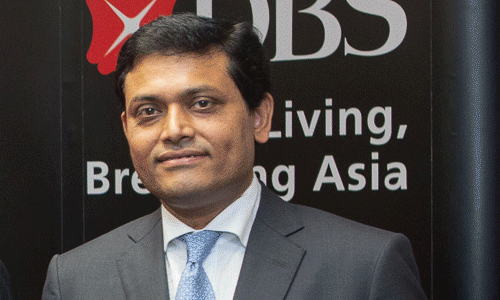DBS: «Even Now Regulators Insist on Face-to-Face Interactions»
More support is needed from regulators to promote virtual advisory and other digital transformations, DBS said, lest their markets fall obsolete in the post-COVID contactless economy.
Digital adoption has sharply accelerated at DBS across all facets by five to six-fold, according to Sanjoy Sen, group head of consumer franchise and distribution at DBS, be it equity trading, remittance or usage of other banking functions digitally. And expectations are for this to persist after the pandemic as many individuals fundamentally and permanently transform their behavior not only in banking but also for other daily consumer activities.
But within the financial sector, advisory and sales practices, administrative processes and other activities are strictly regulated with traditional conventions requiring ample physical interaction, paper usage and more non-digital means. DBS’s Sen urged acceleration of regulatory innovations to meet the needs of the changing real world.
«The new world which is going to come post-COVID is that of contactless commerce and economy,» Sen said at a recent online conference. «So its important that we get support from regulators to allow virtual advisory [activities].»
Contactless Banking
There is a myriad of areas that DBS is actively collaborating with regulators in various markets to further allow and enable the growth of contactless banking. Examples include the continued use to make it mandatory that signatures be physical rather than digital or the promotion of payment mechanisms that use less physical cash.
«We see in that many of our markets, even now the regulators insist on face-to-face interactions,» Sen said, stressing the gap between the financial services environment and the real economy.
Level Playing Field
The emergence of accelerated digital adoption during the pandemic coincides with new and upcoming entrants of virtual lenders with eight already licensed in Hong Kong and 15 awaiting rejection or approval in Singapore.
Although Sen welcomed the entry of fintech competitors into the banking market, he underlined that regulators must ensure there is no unfair advantage that can be exploited.
«There has to be a level playing field between the banks and the fintech so that all of us work and collaborate together […] and not have a situation where there is unfair play to grab market share at the cost of not doing the right thing,» he said.
Active Participant
More than just creating new rules to allow new activities or enable new growth, Sen also underlined the role that regulators have to play as an active participant within the financial services. This includes functions that can be housed with regulators and leveraged by the market such as a centralized know-your-client (KYC) functions with industry API for ecosystem onboarding.
«The regulators in all our markets need to support an environment that promotes innovation and digital disruption,» he added.



























